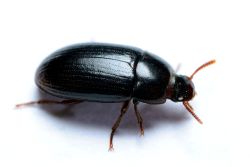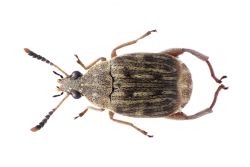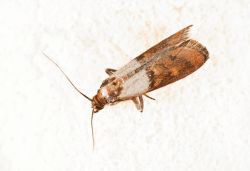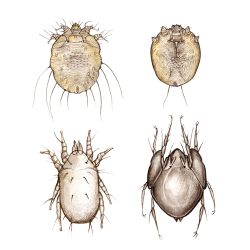Stored Products Pest Control
|
Beetles
|
Weevils
|
Moths
|
Mites
|
Protect Your Food, Property, and Products from Hidden Invaders
Stored product pests are a silent but serious threat. They infest dry food items, fabrics, books, documents, and other stored materials—often going unnoticed until significant damage has occurred. At Eudaimonia Pest Control Management, we specialize in the detection, elimination, and prevention of these elusive pests using advanced, environmentally responsible techniques.
If you're finding unexplained odors, damaged packaging, or tiny insects near stored goods, it's time to act.
What Are Stored Product Pests?
Stored product pests are insects or mites that infest dry goods and other preserved materials in homes, businesses, warehouses, and food processing facilities. These pests can cause:
-
Food contamination
-
Significant economic losses
-
Allergic reactions in sensitive individuals
-
Damage to valuable items like books, fabrics, and historical artifacts
They are often introduced into your space via infested products or packaging, or they may thrive in improperly stored goods over time.
Signs of a Stored Product Infestation
Early detection is critical. Look out for:
-
Tiny beetles or moths flying near storage areas
-
Webbing, clumping, or powdery residue in dry goods
-
Hollow grains or beans when soaked in water
-
Musty or stale odors in pantries or closets
-
Insects crawling on countertops, ceilings, or walls
-
Booklice or mites damaging documents or food containers
These signs indicate an active infestation that can quickly spread if not professionally addressed.
Our Stored Product Pest Control Process
At Eudaimonia, we follow a comprehensive, step-by-step strategy to ensure complete control:
1. Detailed Inspection
Our experts inspect all vulnerable areas, including pantries, storage rooms, warehouses, and production zones, to locate infested items and determine the extent of the problem.
2. Targeted Removal
We physically remove infested goods and dispose of them safely. Sanitation is critical to eliminate active pests and their eggs.
3. Residual & Growth Regulator Treatments
We apply safe, long-lasting residual insecticides and insect growth regulators (IGRs) to stop pests from reproducing and reinfesting your space.
4. Pheromone Monitoring
Discreet monitors are installed to detect future pest activity before it becomes a full-blown problem.
5. Customized Prevention Plans
We work with you to create better storage and sanitation protocols, keeping your products safe and pest-free long-term.
Common Stored Product Pests We Treat
We’re equipped to eliminate a wide variety of storage pests across categories:
|
BEETLES Rust-red Flour or Flour Beetle |
WEEVIL |
MOTHS |
MITES |
Where Stored Product Pests Are Found
-
Kitchens & Pantries
-
Warehouses & Distribution Centers
-
Restaurants & Bakeries
-
Food Processing Facilities
-
Libraries & Archives
-
Closets & Storage Rooms
Stored product pests don’t discriminate—they’ll infest any place where food or organic materials are improperly stored or undisturbed.
Why Choose Eudaimonia for Stored Product Pest Control?
-
Integrated Pest Management (IPM) for lasting results
-
Safe for food storage and sensitive environments
-
Custom solutions based on your space and industry
-
Fast response and discreet service
-
Expert technicians with experience in residential, commercial, and industrial settings
Don’t Let Stored Product Pests Destroy Your Goods
If you're seeing suspicious signs around stored food, fabric, or paper items—don't wait. Stored product pests multiply quickly and are difficult to eliminate without expert help.
Call Eudaimonia Pest Control Management today for a consultation and inspection.
Let us restore a pest-free environment with effective, responsible solutions.



